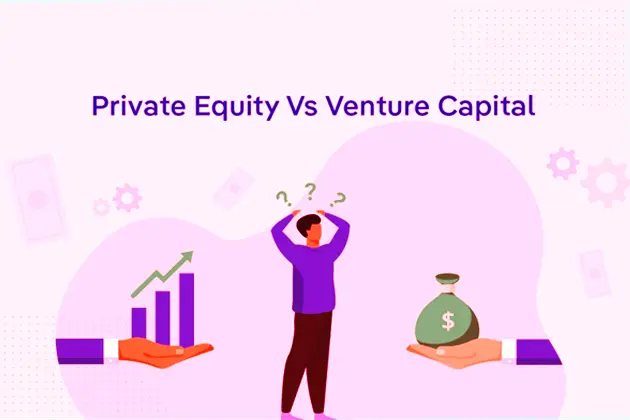Venture capital and private equity investments are similar in terms of equity investment for companies that are not publicly listed. However, both investments differ in many aspects and are profitable in their own unique way. Learn what are private equity and venture capital investments and how they differ from each other.
Private Equity
Private equity is the risk capital offered outside the public markets. Equity is an umbrella term for a range of financial instruments that equitably share in the profits and losses of a private business. Private equity investment is predominantly about generating capital gains by purchasing equity stakes in businesses, managing those businesses, and realizing the value drawn from selling the business. Most private equity investors fundamentally aim to attain capital gain rather than income.
Investors in this investment type work to enhance the performance of their portfolio companies over their holding period to generate profitable returns. Performance is increased by strengthening the management team, acquiring new businesses, shaping business strategies, launching new products, streamlining operations, and optimizing the capital structure.
Venture Capital
Venture capital, similar to private equity, invests only in private companies but holds different other characteristics. A venture capitalist is regarded as a financial intermediary that invests investors’ capital directly in the portfolio companies. Companies cannot be traded on a public exchange if investments are made through venture capital.
Similar to PE, VCs also contribute to the performance enhancement of portfolio companies to maximize the financial return through a sale or an initial public offering by exiting the investment. Venture capitalists invest fundamentally to ensure the internal growth of companies.
As VC focuses on driving the internal growth of companies, it proceeds to build new businesses and not to acquire existing businesses. The portfolio companies that VCs invest in are typified as startups, early-stage, and late-stage. A startup VC portfolio company produces concept proofs, and early-stage companies are already in the business or at the initial expansion stage. A late-stage portfolio company is expected to see a plausible exit.
Private Equity vs. Venture Capital
In the private markets, both the private equity and venture capital firms are capital providers, financing companies in exchange for equity. The differences between both investments are reflected below to help determine their functions and goals-
| Investments | Lifecycle Stage | Types | Investors | Drivers of Returns | Profitability | Risks | Hold Period |
| Private Equity | Late-Stage | Majority Stake of over 50% |
|
|
Stable | Private Equity firms do not take risks as they invest in established companies, and the failure of one company can be lethal for PE firms. | 3-6 years |
| Venture Capital | Early-Stage | Minority Stake below 50% |
|
|
Pre-revenue to Unprofitable | Venture capitalists are at high risk as the chances of failure with the portfolio companies are higher. | 5-10 years |
Differences at a Glance
The key difference between private equity and venture capital is the age of the portfolio company. As evident above, venture capital is generally an early-stage investment. Innovative new businesses with a robust growth potential mostly receive VC investments. Whereas PE investments aim to support the management of an existing and mature company with an established trading experience.
Compared to PE, VC investments have higher risks, with a target company having little profitability and in need of funds to achieve growth. PE intends to invest in established companies to help them maximize efficiencies and drive business growth through new revenue sources, increased revenue, and acquisitions.
Private Equity vs. Venture Capital: Which Investment is Better?
Precisely, Private Equity and Venture Capital cannot be considered better or worse than one another. Each has its own risks and returns. Given the stage of investment, venture capital is riskier than private equity. In private equity vs. venture capital, the choice of selecting the investment differs as per the investors’ preferences.
In terms of risks and profitability, PEs are comparatively less risky and more profitable than VC investments. Conversely, VCs are better in terms of funding and expertise as they tend to help a low-scale business grow exponentially. So, it cannot be said which investment is better; the choice is on the investors and their goals.










